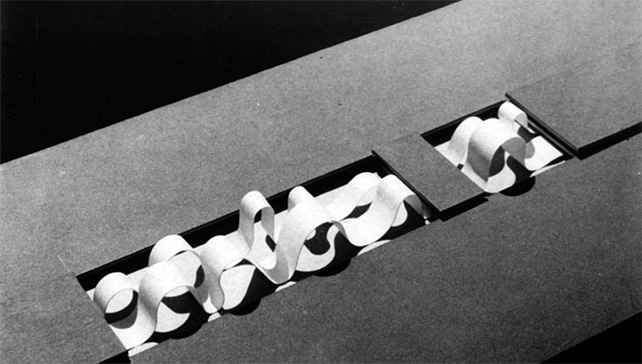
Mary Otis Stevens, early concept model for the Lincoln House, 1965.
Mary Otis Stevens (b.1928) is a pioneering American architect, especially notable for her presence as a leading figure in a male-dominated field in the 1950s and 1960s. Her architectural designs, along with the founding of iPress (1968-1978), an important publisher of books on architecture, urbanism, and social space, were linked to her ability to radically re-envision space and relationships.
In the context of the Cold War and American political activism in the 1960s, her work, which were often in collaboration with fellow architect and iPress co-founder Thomas McNulty, revealed her foundational training in philosophy and her commitment to de-centralising hierarchies. Revisiting her work more than fifty years later, the themes of active citizen participation in government, integrated planning, and genuine risk-taking to make substantial change in people’s lives remain relevant and crucial means of incorporating a social context into the practice of architecture.
On view is Mary’s sensitivity to variations, large and small, visible in her work as a publisher as well as her drawings and architectural designs. This research presentation also explores The Ideal Communist City, an iPress publication by Alexei Gutnov et al. from 1970 that offers a deep dive into a utopian proposition that “the new city is a world belonging to all and to each.”
Venue: NTU CCA Singapore, Gillman Barracks, The Lab
When: 14 Feb - 16 Aug 2020, 12noon - 7pm
By: NTU Centre for Contemporary Art Singapore (NTU CCA Singapore)







